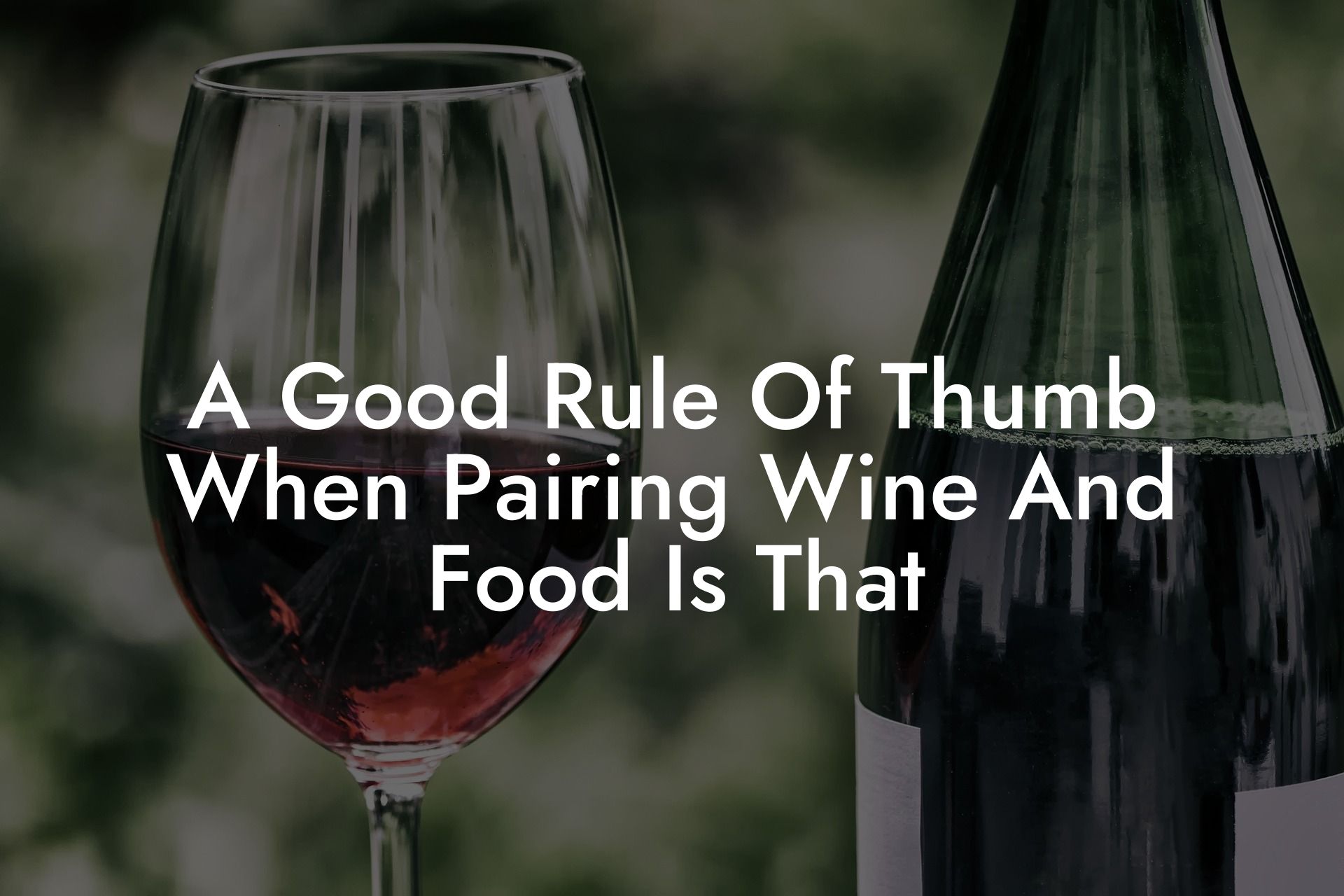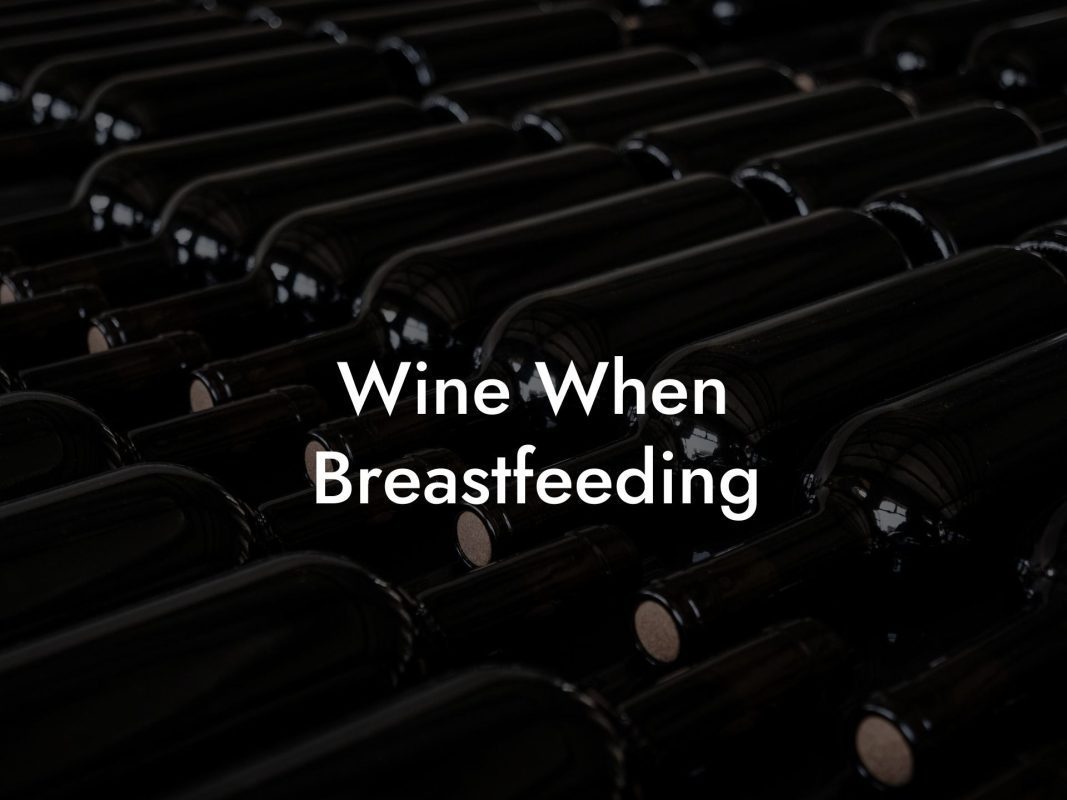When it comes to making a perfect match between wine and food, many might be left wondering where to even begin. With the plethora of wine varieties and food choices available, it can seem like an insurmountable task to create a heavenly dining experience. Fear not, fellow wine enthusiasts and foodies, for we at Black Wine Club are here to provide you a good rule of thumb when pairing wine and food, ensuring each sip and bite is a harmonious delight!
A Good Rule Of Thumb When Pairing Wine And Food Is That Table of Contents
Understanding the Basics of Wine and Food Pairings
The Principle of Balance
The ultimate goal of any wine and food pairing is to achieve balance. This means that neither the food nor the wine should overpower the other, but instead complement each other, with each bite and sip enhancing the flavors present in both.
Wine Characteristics to Consider
When pairing wine with food, it's essential to understand the characteristics of the wine, such as:
Do You Want to Win a Free Bottle of Wine?
Don't miss out on the opportunity to win a free bottle of wine every week.
Enter our weekly prize draw today!
- Tannin level: Tannins are compounds found in wines, particularly red wines, that create an astringent, drying sensation in the mouth.
- Acidity: The acidity of a wine can impact how it pairs with certain foods, as it can either brighten or cut through the flavors of the dish.
- Sweetness level: Sweet wines can be an excellent match for spicy or rich foods, as they can tame heat and balance out the richness.
- Body and weight: The body and weight of a wine can affect how it pairs with certain foods, with lighter-bodied wines generally matching better with lighter fare and heavier-bodied wines with heartier dishes.
The Rule of Thumb for Wine and Food Pairings
One simple rule of thumb to remember when deciding on a wine and food pairing is that the wine should either match the dominant flavor and intensity of the dish or contrast it in a complementary way. Here are some basic guidelines:
1. Match the Weight of the Wine and Food
The weight of the wine should be on par with the weight of the food, ensuring that neither overpowers the other. For example, pair a light-bodied white wine like Sauvignon Blanc with lighter fare like fresh salads or seafood dishes, while a full-bodied red wine like Cabernet Sauvignon would be better suited to hearty meats or rich, savory dishes.
2. Consider Acidity and Sweetness
Acidic wines can help to cut through rich, fatty, or creamy dishes and make them taste lighter and fresher. Wines with higher acidity, such as whites like Riesling or reds like Barbera, can be perfect choices for dishes that feature cream sauces or fatty meats. On the other hand, sweeter wines like Moscato or Chenin Blanc can balance spicy foods or rich, decadent desserts.
3. Matching Flavor Profiles
Pair wines and foods with similar flavor profiles to create harmony on the palate. If you're enjoying a dish with earthy flavors, like mushrooms or roasted root vegetables, a wine with similar earthy undertones like Pinot Noir may make for an excellent pairing. Conversely, if your dish is light and citrusy, pairing it with a zesty, citrus-forward white wine like Grüner Veltliner can make for a lively and engaging taste experience.
A Good Rule Of Thumb When Pairing Wine And Food Is That Example:
Let's say you're hosting a dinner party and plan to serve fresh oysters as an appetizer, followed by a spicy curry dish for the main course. Your wine pairings may look something like this:
- For the oysters: A crisp, light-bodied white wine like Sauvignon Blanc or Chardonnay would be the ideal pairing, as the acidity of the wine would complement the delicate flavors and saltiness of the oysters.
- For the spicy curry: A sweeter, aromatic white wine like Riesling or an off-dry Rosé would work wonders to tame the spice while still offering fresh, fruity notes that complement the complex flavors of the curry.
Now that you have your rule of thumb for pairing wine and food, you're well on your way to creating memorable dining experiences that will leave you and your guests thoroughly impressed! Be sure to share this article with friends and fellow wine enthusiasts and explore more wine guides on our Black Wine Club website. Remember, practice makes perfect, so enjoy the journey of discovering new wine and food pairings, and have fun along the way! Cheers!
Do You Want to Win a Free Bottle of Wine?
Don't miss out on the opportunity to win a free bottle of wine every week.
Enter our weekly prize draw today!












